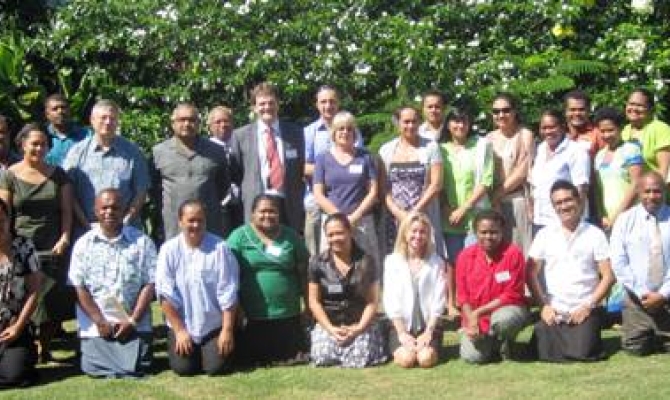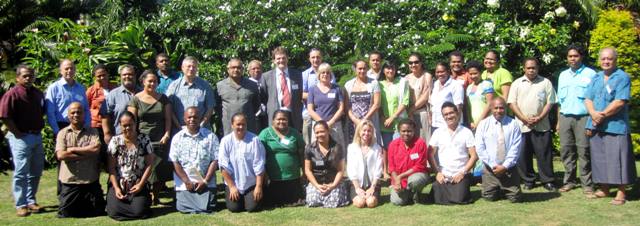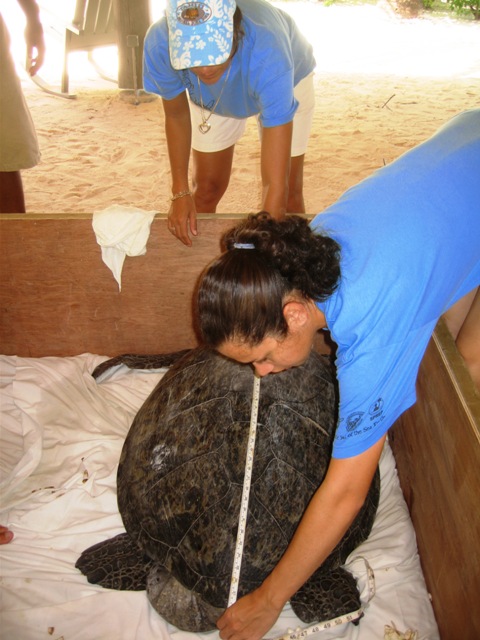
"Unfortunately, the Pacific region has one of the highest historic rates of species loss in a global context, with hundreds of species still under threat." – Mr. Stuart Chape, Director of Biodiversity and Ecosystem Management, SPREP.
Over 30 representatives from 16 pacific countries and territories have had their national and regional capacities strengthened to manage wildlife and regulate international trade in corals and many other species protected by the Convention on International Trade in Endangered Species of Wild Fauna and Flora (CITES).
The meeting was organized by the Secretariat of the Pacific Regional Environment Programme (SPREP) in collaboration with the CITES Secretariat, through funding from the European Commission.
The SPREP Secretariat has declared CITES to be a key part of the SPREP strategic plan. Over the next three years, SPREP aims to help increase the Pacific membership of CITES to include at least an additional four Pacific Island countries from the current 10. SPREP hopes to also collaborate with CITES to develop model management plans for corals, dolphins and other marine life as well as complete training for Pacific Island country authorities to implement CITES.
"Unfortunately, the Pacific region has one of the highest historic rates of species loss in a global context, with hundreds of species still under threat," said Mr. Stuart Chape, Director of Biodiversity and Ecosystem Management, SPREP.
"For many species, action at the national level is not enough - regional and global linkages are critical to support national action," he added.
Many of the issues relating to species conservation and sustainable use are regional and global in scope. Today the ever-growing global demand for wildlife and wild products is threatening the survival of many Pacific species, especially sharks.
"A challenge faced by many Parties is that illegal trade in wildlife is now estimated by some to be in the billions of dollars per year, and may be pushing some species towards extinction," said Colonel Samuela Saumatua, the Minister for Local Government, Urban Development, Housing and Environment of Fiji.
The Representative of the CITES Secretariat, Mr. Tom De Meulenaer, highlighted the work conducted by the Oceania region to implement CITES and extended well wishes from the CITES Secretary-General, Mr. John E. Scanlon, who hails from this region.
Mr. Scanlon welcomed this important initiative from CITES Headquarters in Geneva and declared: "It is through the better understanding of CITES and its provisions, and through collaboration and sharing among the 16 countries and territories of the Oceania region that are present in this room today that we can strengthen CITES in Oceania and safeguard the natural resources on which our future depends."
The workshop on CITES took place in Nadi, Fiji from 5 to 7 March, 2012.
Taking turtle measurement as part of the SPREP regional turtle tagging programme
CITES: Did you know?
Every day, the planet's nearly 7 billion people are consuming wild fauna and flora in the form of cancer medicines, food delicacies, lipsticks, chewing gums, perfumes, clothes and many other products that contain ingredients provided by nature.
The Convention on International Trade in Endangered Species of Wild Fauna and Flora, known by its acronym CITES or 'the Washington Convention', is a multilateral environmental agreement between governments that regulates international trade in species of wild animals and plants is legal, sustainable and traceable.
Commercial international trade is prohibited for 3% of more than the 34,000 species that are protected by CITES, such as marine turtles. For the remaining 97% of species such as most orchids, corals, giant clams and seahorses, trade is regulated to be sure it is legal, sustainable and traceable.
CITES entered into force on 1 July 1975 and, with 175 parties, is now regarded as one of the most important multilateral conservation instruments.
For more information, please contact Mr. Lui Bell at [email protected]

